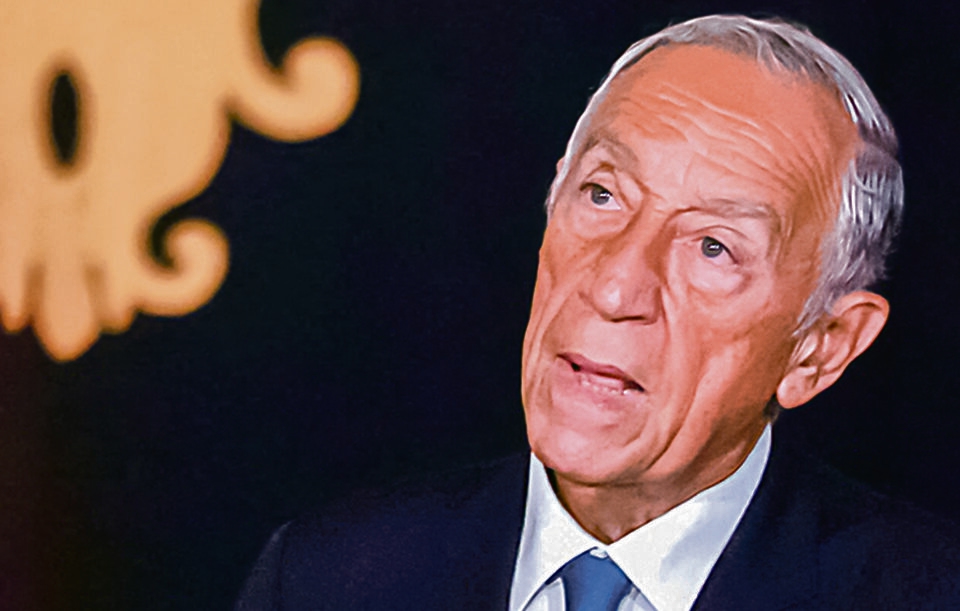President of the Republic sends new Foreigners Law to the Constitutional Court

The President of the Republic has decided to send the new Foreigners' Law to the Constitutional Court, subjecting it to "urgent" preventive review, the head of state announced on the Presidency's website. Marcelo expressed doubts, in particular, regarding the changes to family reunification.
The changes to the regime governing the entry and stay of foreigners in the country were approved in Parliament by the coalition supporting the Government (PSD and CDS) and Chega.
In the request sent to the judges at Palácio Ratton, the President of the Republic refers to the way in which the legislative process took place in Parliament, which the opposition heavily criticized for being "rushed" and "hasty."
“Despite the fact that preventive oversight focuses exclusively on analyzing whether standards comply with the Constitution, and therefore does not consider questions of legality, it is important to note that this legislative process was processed in the Assembly of the Republic as a matter of urgency, and there were no effective consultations and hearings, namely constitutional, legal and/or procedural hearings – mandatory or not – or, when requested, they were requested without respecting the legally established deadlines and/or within deadlines incompatible with effective consultation,” Marcelo points out.
Some of these hearings, he recalls, “are enshrined as mandatory in legal precepts, such as the hearing of the Superior Council of Administrative and Tax Courts; the consultation of the Superior Council of the Judiciary, as well as the Portuguese Bar Association and the Superior Council of the Public Prosecutor's Office”.
"Other hearings and consultations would need to be organized, particularly with entities directly and/or indirectly related to the matters in question, which, although not legally mandatory, would be justified as a way of guaranteeing the democratic legitimacy of the approved law and anticipating problems in its application," the President argues.
Marcelo also points out that the new regime introduces or alters “a significant set of concepts of an undetermined nature or, at least, of difficult (or even impossible) concrete determination, referring regulation, in some situations, to a mere Government Ordinance, broadening the scope of densification of concepts in this way”.
Such concepts may “hinder the application of the Law, not contributing to the necessary and desired legal certainty and legal certainty, constitutionally guaranteed principles, and may even generate differentiated and discriminatory treatment and, certainly, bring an increased and considerable risk of litigation in a fundamental matter of great importance for our Country and for those interested”, fears the Head of State, adding that in a sensitive matter such as this, “it is not at all advisable that there be conceptual uncertainty and recourse to indeterminate concepts, potentially violating the constitutional principle of legal certainty”.
Marcelo refers, for example, to the concepts of “specialized technical skills” (article 57-A, paragraph a), of “accommodation, “…”, considered normal for a comparable family in the same region and which meets the general standards of safety and health”, of “means of subsistence sufficient to support all members of the family group” (article 101, paragraphs ), of “…” “exceptional circumstances associated with the complexity of the analysis” (article 105)”, of “…” gravity of the evolution of the public order or public security situation in part or in the whole of the national territory” (article 106)”.
In justifying the request for preventive supervision, the President emphasizes that the law in question "deals with a matter of high political, social and legal sensitivity, and it is essential to urgently ensure legal certainty and legal certainty, in relation to the approved legal provision, avoiding potential differential and discriminatory treatments, also taking into account that the Government considers it imperative and urgent to regulate this matter."
Marcelo's decision was made this Thursday, after hearings with the parties that wanted, on the one hand, to appeal to the President to veto or send the new regime to the Constitutional Court (Livre, Bloco de Esquerda and PCP) or, on the other hand, to request its promulgation, as was the case with Chega.
jornaleconomico





